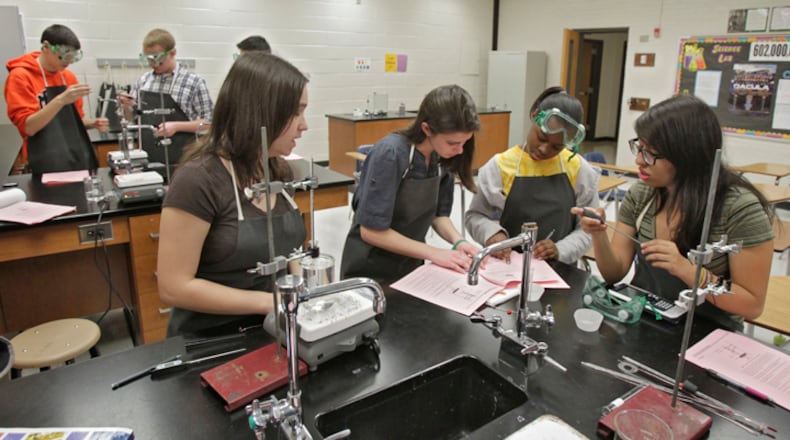This is an interesting joint guest column by Mariajose Montoya Talavera, a rising junior education major at Piedmont University from Honduras, and her professor Perry Rettig, a former vice president at Piedmont University and now a professor there.
For Rettig’s class, Talavera examined the cultural notions of individualism and collectivism and their impact on education. Her basis of comparison was her experiences as a student in Honduras, which has a more collectivist ethos and approach to learning, and later in the United States, which values individual effort and achievement.
The pair teamed up to write about what can be a conflict in classrooms if teachers are not aware of this key cultural difference.
By Perry Rettig and Mariajose Montoya Talavera
Critical thinking is a core learning outcome for all Piedmont University graduates. So, students enrolled in learning and cognition class write an essay critically examining an issue of their choice citing research sources. Topics have ranged from how much homework in schools is appropriate to arming teachers in the classroom. These themes and others like them are common; however, this past semester, one topic emerged that both intrigued and compelled us to explore further.
We examined how cultural perspectives and experiences can impact students who move to the United States and attempt to assimilate into a different culture. While American classrooms feature a primarily individualist mindset, oftentimes students from Latin America, for example, have a more collectivist mindset.
The United States enjoys a stridently individualistic cultural ethos. We grow up learning the values of a strong individual work ethic, of our democratic rights and responsibilities, independence and the notion of success based on personal merit. These attributes form the backbone of not only our workforce, but also the values we teach in our classrooms.
Our individualist culture tends to value independence and personal achievement over group success. In the classroom, we can observe these characteristics in students who prefer to work independently and focus on their own learning objectives. This type of learning approach can be beneficial for students who are self-motivated and enjoy working independently. However, this may lead to isolation and loss of collaboration, affecting some student learning and engagement.
Credit: Contributed
Credit: Contributed
Other cultures from Latin America, Africa, and parts of Asia share a more collectivist cultural ethos. The collectivist culture tends to value cooperation, interdependence, and group harmony over personal achievement. In the classroom, we can observe these characteristics in students who value group work and prioritize the group’s needs over their individual needs. This approach to learning can foster collaboration and the development of social skills. On the other hand, this can generate a lack of individual accountability.
After she moved from Honduras, American schools were a culture shock for student Mariajose Montoya Talavera. While cellphones are ubiquitous on college campuses in both countries, students in Honduras don’t use them nearly as much in public spaces. Rather, students greet one another and socialize while crossing campus, often hugging.
In the United States, students from other countries discover fellow students are more engaged with their phones when walking from place to place. At first, new students might believe the American students are less friendly or caring. This can lead to feelings of isolation, depression or lack of respect. It takes time to understand Americans show their friendliness and compassion differently.
There is a message to be learned here for educators. Teachers must be alert and consider the differences between individualist and collectivist cultures within their classrooms. It is an important variant that affects learning. When a student from a collectivist culture arrives in a classroom where everyone is from an individualist culture, this situation can cause them to struggle and feel out of place.
Conversely, students from individualist cultures may struggle in a classroom where group work or collaborations are emphasized. In an individualist culture, the students take responsibility for focusing and completing their work. In a collectivist culture, the students’ family, teachers and peers are expected to take much of the responsibility as well.
Teachers should be aware of the differences between individualistic and collectivistic cultures to adapt learning strategies that develop independent and collaborative skills. They ought to emphasize the growth and development of the individual while promoting intercultural understanding and respect for their classmates, as well as the benefit of teamwork.
There are more specific implications for our education system. What does a classroom look like that responds to both individualist and collectivist approaches? How is student success measured, and what do homework assignments look like?
We already know the answer for part of the equation. The best teachers already capitalize on opportunities for collectivist notions. Students are often given projects that solve real-life problems and may indeed relate directly to community-based needs. Student success can still be measured individually, but it will also be expressed in success of the group and their success in helping the project succeed. In some such circumstances, typical letter grades may become irrelevant.
We know employers are looking for their emerging workforce to exhibit attributes in critical thinking and analysis, problem solving, teamwork and communication with a civic-minded orientation. Employers are looking for the perfect blend of individual and collective dispositions.
About the Author
The Latest
Featured





